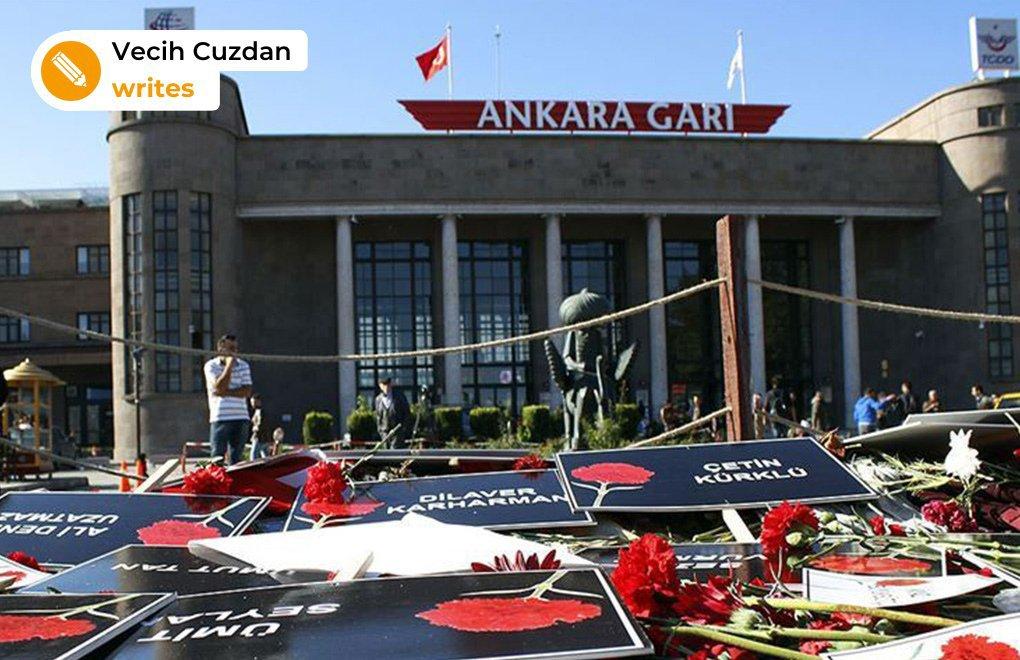
ISIS operatives in Turkey and impunity
The news broke on May 30 that an ISIS member, who had been deported after an armed attack that claimed the lives of 39 people in a luxurious entertainment venue in İstanbul on New Year’s Eve in 2017, reentered the country and was apprehended in Denizli.
This report garnered significant attention and criticism when it was shared on social media because it included a photo of Abdulkadir Masharipov (also known as Abu Muhammed Horasani), the perpetrator who carried out the Reina nightclub shooting.
Naturally, many people wondered if Masharipov had been released. He had been sentenced to 40 aggravated life imprisonments and 1368 years of imprisonment.
The individual detained during the operation targeting ISIS in Denizli was identified as A.A. (32), an Uzbek citizen. In other words, this person was a fellow citizen of Abdulkadir Masharipov and had been captured during the investigation into the attack before being deported.
Right now, we do not know the connection between this person and Masharipov, why he was released, where he was deported, and what he has been doing since then.
However, according to reports, this individual reentered Turkey using a counterfeit Kyrgyzstan passport and was apprehended during the ISIS operation in Denizli. He was subsequently arrested on charges of “being a member of a terrorist organization” by the court.
Naturally, the first question that comes to mind is: Was this person not an ISIS member when he was deported in 2017?
The stories of two ISIS members
Here are the stories of two ISIS members who were tried in the Reina Massacre case:
Ömer Asım and Abuliezi Abuduhamiti, both of Uighur origin and Chinese citizens, went to İstanbul’s Esenler Bus Terminal on December 15, 2016, to collect a package entrusted to them on a bus in Konya.
However, the driver and assistant became suspicious and opened the package, discovering a handgun wrapped in a pasta box. They immediately reported the incident to the Afyon Chief Public Prosecutor’s Office, which instructed them to seal the package and transport it to İstanbul.
The aim was to apprehend the person or persons who would come to collect the package. And that’s exactly what happened. Ömer Asım and Abuliezi Abuduhamiti were arrested in this manner.
It later emerged that Ömer Asım had rented a house together with Masharipov in Konya, using it as a “safe house.”
Naturally, the first question that comes to mind is: If individuals connected to Ömer Asım had been identified within the 15-day window, could the Reina attacker have been apprehended?
Reluctance to prosecute ISIS members
The Reina Massacre case is not the only example that demonstrates the judicial system’s reluctance to prosecute ISIS militants in Turkey. Unfortunately, our country has become a safe haven where ISIS militants, who have committed crimes against humanity, which has been proved by evidence, feel the “most comfortable.”
Here are a few examples:
Ahmet Güneş, a prominent figure in ISIS attacks in Turkey in 2015 and 2016, was coincidentally captured in March 2014 but was released in October 2014 due to the “absence of suspicion of tampering with evidence.”
Qutayba Hammat Qassim, who was presented as an “intelligence officer” of ISIS and had the information of approximately 4,000 ISIS members on his computer, was arrested in Mersin in November 2019. Abu Taqi al-Shami, who appeared in ISIS execution videos, was arrested in Bursa in March 2020. We do not know whether al-Shami has been tried for crimes against humanity, but we know that Hammat was released during the second hearing of the trial, as he became a “confessor.”
Ömer Yetek, who filmed and disseminated the footage of two soldiers being burned to death by ISIS, was released in April 2020 pending trial.
Arkan Taha Ahmed, one of the perpetrators of the massacre where ISIS killed 1,700 soldiers and military school students at the Tikrit Air Academy (Speicher Camp) in 2014, was captured in Bolu in June 2021. He was sentenced to two months of house arrest by the court.
“The culprits’ culpability is made invisible”
According to Senem Doğanoğlu from the Commission of Lawyers of the October 10 Ankara Massacre case, “The trial of ISIS militants is entirely subject to realpolitik, and the most secure judicial mechanism where they can maintain their immunity from all their crimes is in Turkey.”
Emphasizing that such judicial immunity obscures the culprits’ networks, their relationships with the state, and ultimately renders the “culprits’ culpability” invisible, Lawyer Senem Doğanoğlu says, “While thousands of crimes committed by militants of an organization recognized as genocidal and war criminals have been ignored as if they never happened, the October 10 Ankara Massacre was taken into account.”
Doğanoğlu points out that nine individuals were convicted for their responsibility in the massacre on charge of “violating the constitutional order,” while the remaining 12 were convicted for “membership,” and four individuals who completed their sentences were released. Regarding the fugitive defendants in the case, she highlights a striking fact: “As widely reported in the media, the fugitive defendants who remain at large today were previously tried, few of them were arrested, and some were even acquitted militants.”
According to Doğanoğlu, crimes against humanity and genocide are crimes regulated in the Turkish Penal Code, and judges have the authority to try these individuals, even if their crimes were committed beyond the borders of Turkey. However, she notes that despite the international recognition of their crimes against humanity, the gravity of these charges was not addressed at any stage of the trial. (VC/VK)
Source » bianet





